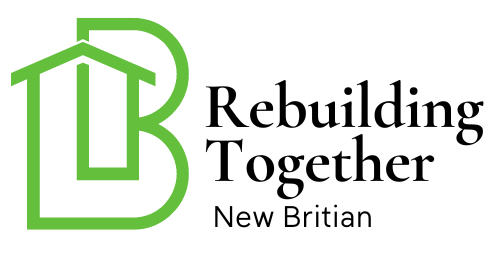As our loved ones age, it becomes increasingly important to focus on helping seniors stay independent. Many seniors prefer to remain in their own homes, surrounded by familiarity and comfort. For homeowners, understanding how to create a safe and supportive environment is key to fostering this independence.

Understanding the Importance of Independence
Independence is not just a preference for many seniors; it’s a vital part of their well-being. It contributes to their mental and emotional health, providing a sense of purpose and dignity. By helping seniors stay independent, we empower them to lead fulfilling lives.
Home Modifications: Enhancing Safety and Accessibility
One effective way to support senior independence is through home modifications. Simple changes can make a big difference in ensuring safety and accessibility. Consider installing grab bars in bathrooms, ramps for wheelchair access, and non-slip flooring. These adjustments can reduce the risk of falls and improve mobility.
For more detailed insights, visit Home Modifications to learn about the benefits of modifying your home.
Technology: Aiding Seniors in Daily Tasks
Technology plays a crucial role in helping seniors stay independent. Devices like smart home systems, medical alert devices, and tablets for video calls can enhance safety and connectivity. These tools provide seniors with the ability to manage daily tasks efficiently and keep in touch with family and friends.
Smart Home Systems for Safety
Smart home systems can automate lighting, security, and climate control, making it easier for seniors to manage their environment. Voice-activated assistants can help with reminders and emergency calls.
Social Engagement: Combating Isolation
Social engagement is essential for seniors to maintain mental and emotional health. Encourage participation in community activities, clubs, or volunteer opportunities. Social connections help seniors feel valued and supported.
Discover more about the Emotional Impact of Aging in Place and how it affects seniors’ lives.
Health and Wellness: Prioritizing Physical and Mental Health
Maintaining physical and mental health is crucial for senior independence. Regular exercise, a balanced diet, and mental stimulation contribute to overall well-being. Encourage seniors to participate in activities they enjoy, such as gardening, walking, or puzzles.
Exercise and Fitness
Simple exercises like yoga, tai chi, or walking can improve balance, flexibility, and strength. These activities not only enhance physical health but also boost confidence in managing daily tasks.
Financial Planning: Ensuring Long-Term Independence
Financial planning is a vital aspect of maintaining independence. Seniors should work with financial advisors to manage their resources and plan for future needs. This foresight ensures that they can continue living comfortably and independently.
Creating a Senior-Friendly Environment
Designing a home environment that caters to seniors’ needs is essential. Focus on creating spaces that are safe, accessible, and comfortable. Consider setting up a hobby room that allows seniors to pursue their interests safely.
Learn about creating a Senior-Safe Hobby Room for more ideas on setting up a suitable space.
Community Resources: Leveraging Support Networks
Many communities offer resources and programs designed to support seniors. These might include meal delivery services, transportation assistance, and social groups. Homeowners should explore these options to provide additional support for their senior family members.
Transportation: Maintaining Mobility
Access to reliable transportation is crucial for seniors’ independence. Whether it’s driving themselves, using public transport, or utilizing community shuttle services, maintaining mobility allows seniors to stay active and engaged.
Explore transportation options and how they impact aging in place at Aging in Place Timeline.
Ensuring Safety in Utility Rooms
Utility rooms can present hazards if not properly managed. Ensuring these spaces are organized and safe is crucial. Simple changes like securing cords, labeling items, and maintaining a clutter-free environment can make a significant difference.
For more tips on improving safety, visit Utility Room Safety Improvements.
Supportive Living Arrangements
Sometimes, living alone may not be feasible for some seniors. Explore supportive living arrangements such as co-housing or in-law suites. These options provide the right balance of independence and support.
Family Involvement: Encouraging Active Participation
Family members play a vital role in supporting senior independence. Regular communication, visits, and involvement in decision-making empower seniors and make them feel valued.
Adapting to Changing Needs
As seniors age, their needs may change. Continuously assess and adapt to these changes to ensure that the support remains relevant and effective. Flexibility is key to maintaining independence over time.
External Resources for Homeowners
For additional insights on making homes senior-friendly, visit Senior-Friendly Home Tips.

FAQs
How can I make my home safer for seniors?
Start by assessing potential hazards in the home and making necessary modifications like installing grab bars, improving lighting, and ensuring easy access to frequently used areas.
What technologies can assist seniors in staying independent?
Smart home devices, medical alert systems, and tablets for communication can enhance safety and connectivity for seniors.
Why is social engagement important for seniors?
Social engagement combats isolation, improves mental health, and provides a sense of belonging, contributing to overall well-being.
By focusing on these key areas, homeowners can significantly contribute to helping seniors stay independent and improve their quality of life. Independence is a cherished value, and with the right support, seniors can continue to thrive in their own homes.
This article contains affiliate links. We may earn a commission at no extra cost to you.

